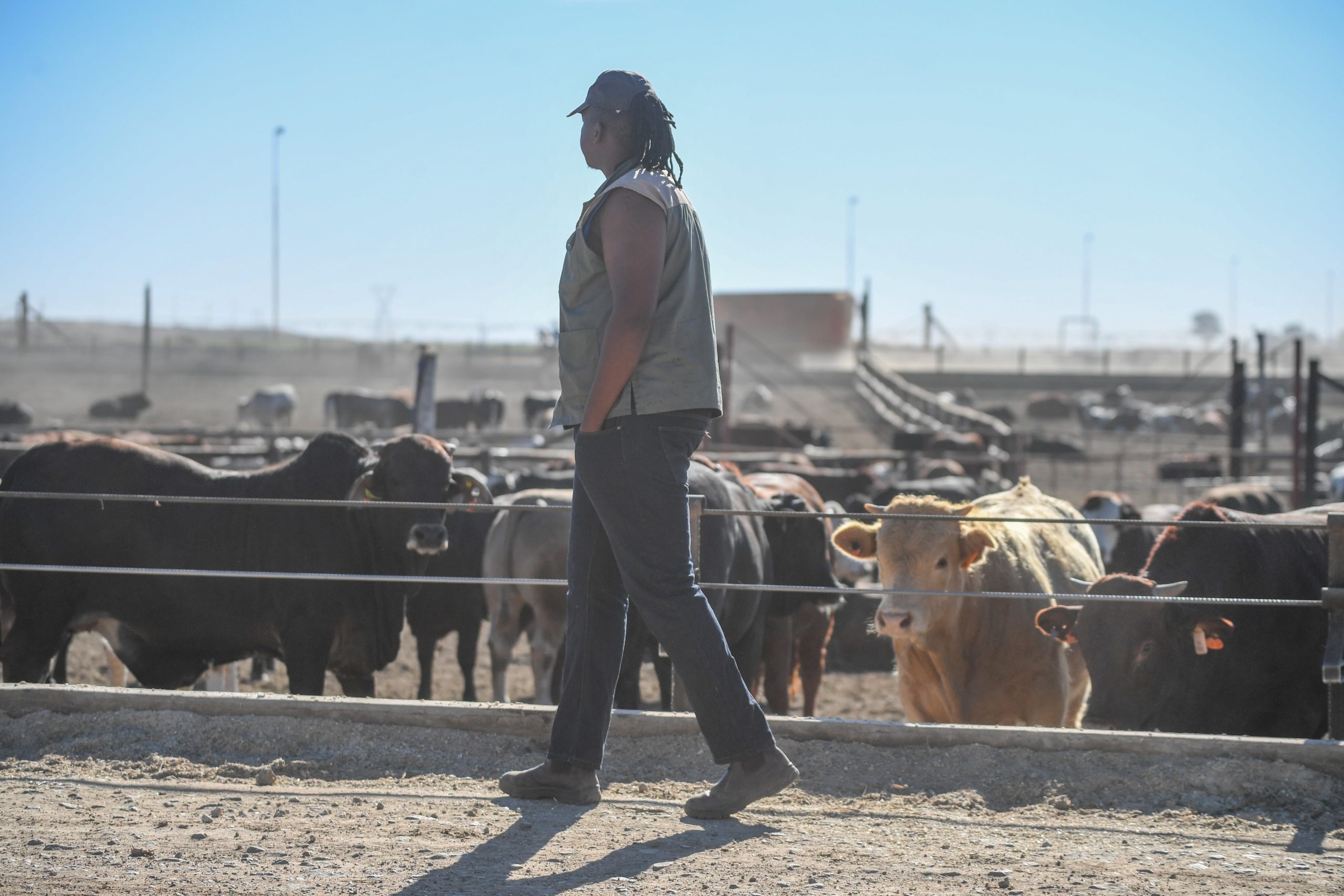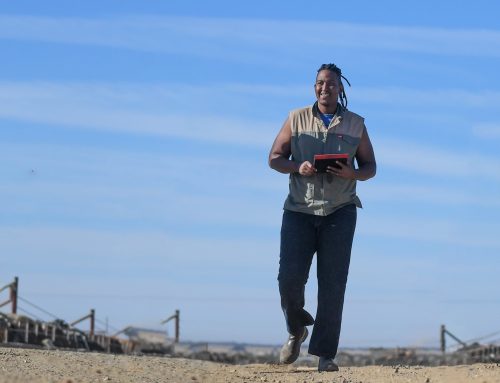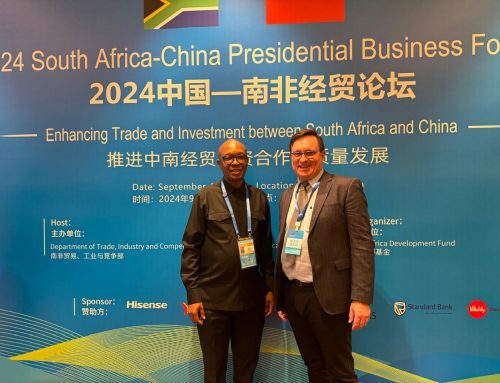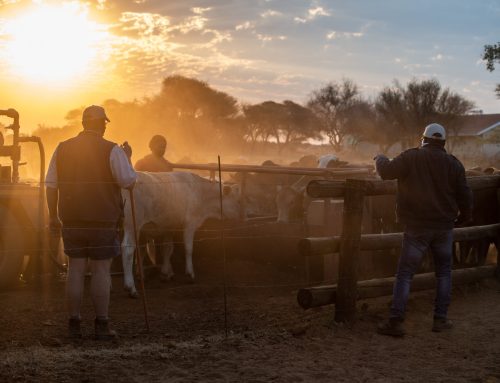New project aims to assist communal farmers to scale operations to commercial status
About 60% of the almost 14 million cattle in South Africa belong to commercial farmers, while the remaining 40% of herds are owned by emerging or communal farmers, who are often not given the support they need in a highly complex and competitive environment. In a bid to counter this and foster inclusive growth in the agricultural sector, a new project aimed at assisting small-scale producers to expand their operations and engage in commercial trading is set to transform the landscape for aspiring farmers.
Owen Segano Modiradijo is a cattle farmer in Kuruman, Northern Cape. He’s part of a cooperative known as Ambition Farms, a group of 12 farmers who have herds with between 20 and 100 Brahman, Bosmara, and Beefmaster cattle. The company started out as a type of cattle stokvel, where four farmers would receive a calf each from the remaining farmers, which meant that in this way, each farmer receives eight calves every three years. However, about two years ago, Ambition Farms realised they needed to up their game if they wanted to achieve growth.
“At that stage, our sales point was mainly at group gatherings, and we weren’t getting the prices we wanted for our cattle,” he says. “That’s when we contacted the Beefmaster Group for help.”
Contributing meaningfully to commercial farming
Enter Thapelo Kgosi Ramokala, known as King, Beefmaster Group’s animal health specialist. What started out as a request for help in October 2023 when Ambition Farms reached out to King, has grown into a pilot project that aims to assist small-scale producers to expand their operations and engage in commercial trading.
“At Beefmaster Group, we believe in the potential of emerging farmers to contribute meaningfully to the agricultural industry,” says King. “This is why we forge strong relationships with farmers and primary producers, regardless of breed, helping farmers boost the quality and sustainability of their herds.”
From practical advice to recommending vaccinations, supplements, and deworming, Beefmaster Group is committed to equipping these farmers with the tools they need to thrive and is actively involved in helping the 12 Kuruman farmers improve their animal husbandry techniques.
“The project is designed to provide the necessary support, resources, and guidance to help these farmers transition from emerging farming to commercial trading,” says King. “Most of what I do is find ways to improve the health of their herds. Obviously, the healthier the herd and the better the weight management, the better the farmer is able to compete.”
The first commercial sale of about 120 calves will take place on 9 June. “We are delighted that Beefmaster will be buying our calves,” says Modiradijo. “We hope to get the financial reward of all our hard work.” Another sale is set to take place between September and November.
“One of our main challenges is that we are farming on communal land,” comments Modiradijo. “We are trying our best to upgrade ourselves and expand, but because we only have access to communal land, it is difficult.”
King acknowledges these constraints but is nevertheless positive that it’s still possible to achieve commercial success as a small-scale farmer. “This project is not a once-off thing,” he says. “It focuses on identifying and selecting promising emerging farmers, offering them tailored support and resources to enhance their operations and market access.”
As well as the Kuruman cooperative, there are plans to roll out the project to other emerging farmers around the country, starting with the Northern and Western Cape. However, there are barriers to creating a healthier herd, including the threat from disease outbreaks like Foot and Mouth Disease (FMD), due to various factors, including a lack of strict biosecurity measures and industry enforcement of such measures, a breaking of the rules and regulations, insufficient vaccination coverage, and a lack of awareness, amongst others.
“One of the key objectives of this project is to create sustainable pathways for emerging farmers to scale up their operations and achieve commercial success. Through targeted interventions and ongoing support, we aim to unlock the full potential of these farmers and catalyse positive change within their communities,” King concludes.






